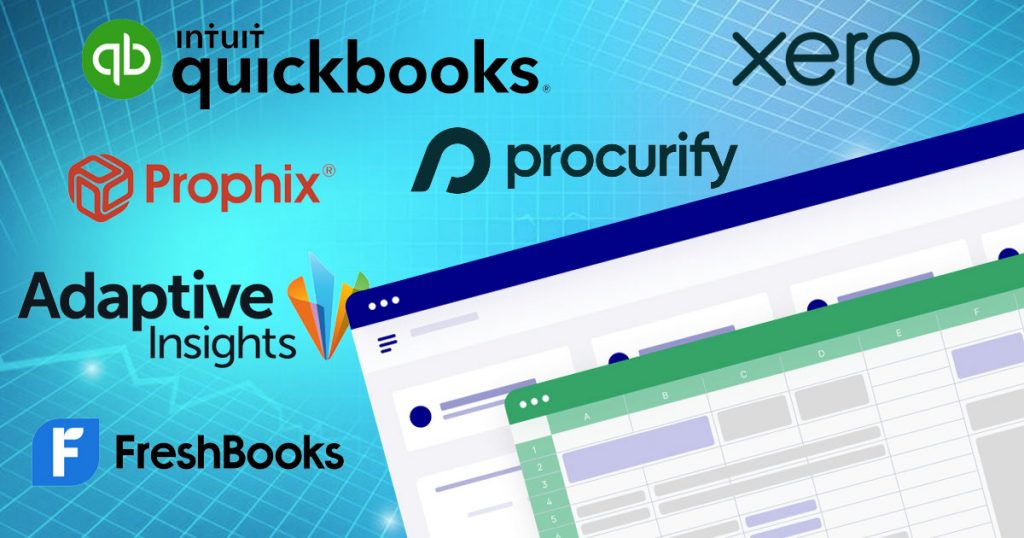Managing business finances can feel overwhelming, but the right budgeting software makes all the difference. The best business budgeting software helps simplify expenses, improve forecasting, and ensure long-term financial health. You need to know which software to get for your business. This might not be easy to do with many different options, but I can help you with that, as we’ll discuss the best ones available so far.
The 10 Best Corporate Budgeting Software Solutions
1. Procurify – Best for Expense Control
Procurify helps businesses take control of their spending with real-time budget tracking and approval workflows. Its integration with financial systems simplifies expense management, ensuring companies stay within budget.
Features
- Real-time budget tracking
- Approval workflows to control spending
- Integration with major financial platforms
Pros: Simplifies expense tracking and approval processes.
Cons: Limited financial forecasting tools.
2. Adaptive Insights – Best for Large Companies
Adaptive Insights offers powerful financial planning with AI-driven forecasting and scenario modeling. It’s an excellent choice for enterprises that need detailed financial performance tracking.
Features
- AI-powered forecasting
- Scenario modeling for financial planning
- Performance tracking and analytics
Pros: Ideal for large companies needing complex financial forecasting.
Cons: Can be overwhelming for smaller businesses.
3. QuickBooks Online Advanced – Best for Small to Medium-Sized Businesses
QuickBooks Online Advanced is a well-known solution that offers budgeting tools tailored for growing businesses. Its cash flow tracking, banking integration, and customizable reports make it easy to manage finances.
Features:
- Customizable budgeting tools
- Bank integration and automatic transaction tracking
- Easy-to-generate financial reports
Pros: User-friendly and great for growing businesses.
Cons: Limited advanced forecasting features.
4. Xero – Best for Simplicity and Automation
Xero simplifies budgeting with automation and real-time insights. Its mobile-friendly design ensures businesses can manage finances from anywhere.
Features:
- Automated budgeting and expense tracking
- Real-time financial insights
- Mobile-friendly interface
Pros: Easy to use and great for small businesses.
Cons: Some features require third-party apps.
5. Sage Intacct – Best for Advanced Financial Insights
Sage Intacct is a powerful enterprise budgeting tool that offers AI-driven insights and multi-entity support. It’s designed for businesses that require detailed financial management.
Features:
- AI-powered financial analytics
- Multi-entity financial management
- Automated workflows for efficiency
Pros: Advanced analytics and automation for large enterprises.
Cons: High learning curve and premium pricing.
6. Microsoft Dynamics 365 Finance – Best for Enterprise-Grade Financial Management
Microsoft Dynamics 365 Finance offers a powerful set of budgeting tools with AI-driven analytics and seamless integration with Microsoft products.
Features:
- AI-powered financial analytics
- Built-in security and compliance features
- Deep integration with Microsoft’s ecosystem
Pros: Great for businesses already using Microsoft tools.
Cons: Complex setup process.
7. FreshBooks – Best for Small Businesses and Freelancers
FreshBooks is perfect for small businesses that need simple budgeting and invoicing. It streamlines financial management without unnecessary complexity.
Features:
- Automated invoicing and payment tracking
- Cash flow monitoring
- Easy-to-use reporting tools
Pros: Simple and great for freelancers and startups.
Cons: Not ideal for complex financial planning.
8. NetSuite Planning and Budgeting – Best for Real-Time Forecasting
NetSuite is a strong choice for companies needing real-time financial consolidation and planning. Its scenario analysis helps businesses optimize resources effectively.
Features:
- Real-time financial forecasting
- Scenario analysis for budget planning
- Automated reporting tools
Pros: Powerful financial insights and forecasting capabilities.
Cons: Can be expensive for smaller businesses.
9. Prophix – Best for Reducing Manual Work
Prophix automates financial forecasting and reporting, saving businesses time while reducing human error.
Features:
- AI-driven budgeting automation
- Customizable reporting and analytics
- Secure cloud-based financial management
Pros: Great for automating repetitive financial tasks.
Cons: May require some training for full use.
10. Float – Best for Cash Flow Management
Float is perfect for businesses that need better cash flow control. It integrates with popular accounting software to provide real-time budget updates.
Features:
- Real-time cash flow tracking
- Integration with QuickBooks, Xero, and other accounting platforms
- Scenario planning for financial forecasting
Pros: Excellent for managing cash flow efficiently.
Cons: Focuses more on cash flow than full budgeting.
How to Pick the Right Budgeting Software
Picking budgeting software isn’t about grabbing the one with the most bells and whistles—it’s about finding the one that actually works for your business.
Know What Your Business Needs
Not every company needs advanced forecasting. A small business might only need simple cash flow tracking, while a growing company could benefit from AI-driven budgeting. For example, a freelancer may find QuickBooks enough, but a larger firm might need NetSuite for managing multiple departments.
Make Sure It Grows with You
Your business will change, so your budgeting tool should scale with you. FreshBooks is great for small teams, but a company expanding across multiple locations might need Sage Intacct or Microsoft Dynamics for more advanced financial management.
Check If It Works with What You Already Use
Your budgeting tool should integrate with your accounting and CRM software. If you already use QuickBooks, it makes sense to pick software that syncs with it rather than entering data manually.
Keep It Simple
A feature-packed tool isn’t helpful if it’s too hard to use. Software with a clear dashboard and easy navigation saves time. If your team struggles with complex tools, something user-friendly like Xero is a better choice.
Look at Price vs. Value
Budgeting software is an investment, but some tools have hidden fees for extra users or integrations. Always check for free trials before committing. For example, Xero might seem affordable, but added features can increase costs.
Budgeting Smarter, Not Harder
Managing business finances isn’t just about tracking expenses—it’s about working smarter. Budgeting software will make managing business finances easier, allowing you to focus your time and energy on other important matters. With so many great options out there, there’s no reason to stick with outdated spreadsheets and manual tracking anymore.
